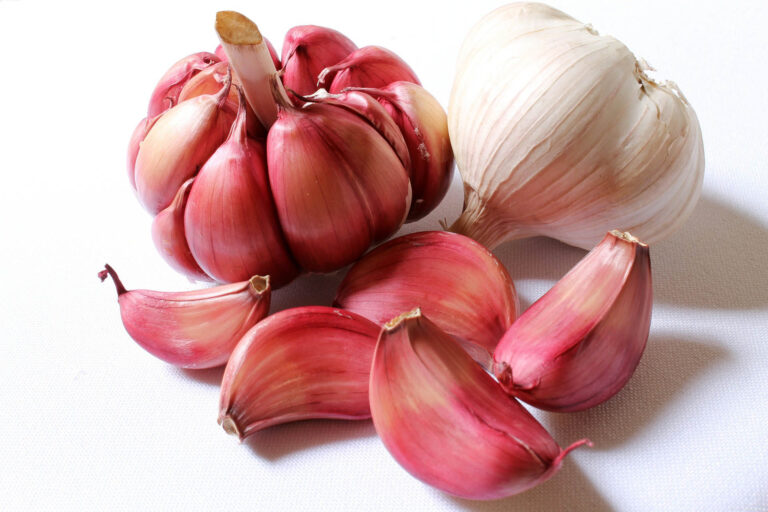Is Garlic the Secret to a Healthy Brain and a Happy Gut?

Garlic conjures up smells of delicious meals wafting up from the kitchen.
Probably one of the most widely used herbs to enhance meals, garlic is used in most savory dishes by most cultures. On the other hand, the dreaded garlic breath smell can haunt us. No wonder, garlic has earned the infamous reputation of the bad breath king. This occurs due to the presence of several sulfur compounds in garlic, such as allyl methyl sulfide. These compounds undergo absorption in the gut and secretion into the bloodstream before being exhaled through our breath, which contributes to the pungent odor of garlic. I can still remember my sister taking me to the The Stinking Rose in San Francisco for my birthday; we came out stinking but till this day who can forget the buttery garlic knots infused with sweet delicious garlic cloves. Garlic has truly survived the test of time. These small white bulbs are 2500 years old and were first used by the ancient Greek physician Hippocrates to treat respiratory problems, fatigue, and poor digestion. Garlic is packed with essential nutrients, like vitamins B and C, and minerals, such as potassium, iron, copper, and magnesium, which cumulatively promote heart health and protection from infectious disease. Recent research studies also suggest that the compounds present in garlic can have a vital role in regulating our mood, protecting brain and gut health, and preventing neurodegenerative diseases and microbial disorders.Garlic can play a major role in our mental health due to its antidepressant properties. Garlic inhibits monoamine oxidase levels and reduces the reuptake of dopamine and serotonin. By increasing the levels of these neurotransmitters, garlic acts similarly to antidepressants and plays an important role in uplifting mood, while helping alleviate anxiety and depression. As such, adding garlic to our daily diet can exert great therapeutic effects that could help manage depressive disorders.
Eating garlic can help our brain cells from damage to environmental stressors.
During aging, parts of our brain linked to cognitive function, memory, and learning may decline. Garlic’s anti-inflammatory properties help decrease this functional loss in the brain and improve memory and other cognitive functions. For instance, eating garlic can help our brain cells from damage to environmental stressors and make it more resilient to neurological diseases and aging. A recent study discovered that a carbohydrate derivative of garlic, called fructosyl arginine (FruArg), helps reduce the amount of nitric oxide produced by glial cells in response to stress. Microglial cells, found in the brain and spinal cord, respond to stress by multiplying and releasing nitric oxide in this process. Excessive production of nitric oxide in the brain can lead to brain cell damage and neurodegenerative diseases, such as Alzheimer’s disease. However, eating either raw garlic or aged garlic extracts can help reduce beta-amyloid induced neurotoxicity and cognitive impairments due to their neuroprotective role.
